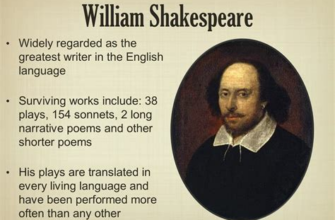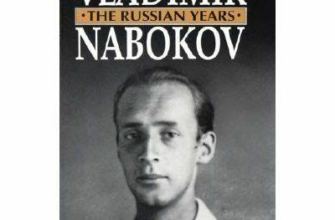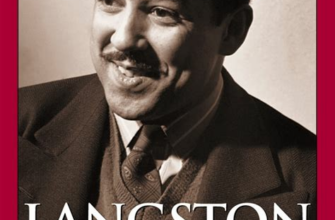In the vast realm of literature, there are certain figures whose names stand as beacons of brilliance, their words captivating generations and leaving an indelible mark on the world. One such luminary, whose work continues to resonate with readers today, is none other than F. Scott Fitzgerald. With a pen that dripped with eloquence and a mind that brimmed with creativity, this enigmatic figure crafted stories that painted vivid portraits of an era gone by.
Delving into the persona of F. Scott Fitzgerald allows us to embark on a journey through the depths of a prolific writer's mind. Through his compelling narratives, Fitzgerald breathed life into characters that became synonymous with the Jazz Age, a period of opulence, excess, and social change. His writing was a mirror that reflected the glitz and glamour, the hopes and dreams, and the moral dilemmas that plagued society during that tumultuous time.
Not only did Fitzgerald's vivid prose capture the essence of an era, but it also served as a poignant commentary on the human condition. His characters, flawed and relatable, resonated with readers on a visceral level. Fitzgerald's ability to navigate the complexities of love, ambition, and the pursuit of the elusive American Dream set him apart as a master of storytelling.
Yet, behind the facade of fame and adulation, F. Scott Fitzgerald's personal life was a labyrinth of complexity. The writer himself became a character in his own narrative, battling demons of his own creation. Exploring the intricacies of his personal relationships, his battles with alcoholism, and the constant struggle between the desire for success and the weight of his own insecurities adds depth and nuance to the study of his life and work.
Join us as we embark on a captivating exploration of the life and genius of F. Scott Fitzgerald, peeling back the layers of intrigue and discovering the man behind the words. Through careful analysis and intimate glimpses into his personal correspondence, we will unravel the mysteries that shroud this literary icon. Prepare to be captivated by the story of a man whose legacy continues to shape the literary landscape, reminding us of the power of words and the enduring impact of a singular genius.
The Formative Years and Influences Shaping F. Scott Fitzgerald's Early Life

Within the realm of F. Scott Fitzgerald's origins and the factors that molded his burgeoning existence, various key elements emerge that played a critical role in his development as a prominent literary figure. Examining the formative years of this celebrated writer unveils a captivating narrative of experiences, relationships, and influential factors that ultimately shaped his unique perspective and creative genius.
Formative Years and Education: Journey from Minnesota to Princeton
Delving into the early life and educational pursuits of the esteemed literary figure, this section explores the transformative years and educational experiences that shaped the brilliant mind behind some of the most captivating works in American literature.
A Childhood Rooted in Minnesota: Growing up in the heartland of Minnesota, Fitzgerald's upbringing was imbued with the sights, sounds, and values of the Midwest. The rolling plains and vast landscapes of this region provided a backdrop for his formative years, and their influence would later manifest in his writing.
An Intellectual Ambition Awakens: While Fitzgerald exhibited a propensity for creativity and storytelling from a young age, his intellectual journey truly began to take shape during his schooling years. With the guidance of dedicated teachers and a thirst for knowledge, he embarked on a path that would ultimately lead him to become one of the literary geniuses of his time.
The Ivy League Experience: Through determination and academic excellence, Fitzgerald earned a coveted spot at the distinguished Princeton University. As he immersed himself in the halls of one of America's most esteemed institutions, he honed his literary skills, nurtured his intellectual curiosity, and established connections that would profoundly influence his life and career.
An Education Beyond the Classroom: While formal education played a significant role in Fitzgerald's development, his education extended far beyond the confines of the lecture hall. Immersed in the vibrant cultural landscape of Princeton, he found inspiration in the literary and artistic movements of the time, shaping his perspectives and adding depth to his writing.
Finally, the emergence of a literary master: Building upon the foundation of his formative years and enriched by a rigorous education, Fitzgerald began to find his voice as a writer. The culmination of his experiences and education laid the groundwork for his remarkable career, propelling him to become a literary master whose works continue to captivate readers generations later.
The Impact of World War I: Fitzgerald's Military Service and Writing Career Beginnings

Exploring the profound influence of World War I on the trajectory of F. Scott Fitzgerald's life and the beginning of his illustrious writing career.
Delving into the historical backdrop of the tumultuous World War I era, we uncover the transformative impact it had on the life and literary aspirations of the esteemed writer, F. Scott Fitzgerald. By immersing himself in the military service during the war, Fitzgerald gained firsthand experience of the chaos, loss, and disillusionment that defined the era. These experiences stimulated his creative faculties, instilling in him a deep understanding of the human condition and a desire to capture it through the written word.
Fitzgerald's military service played a pivotal role in shaping his writing career. While stationed in Europe, he witnessed the harrowing realities of war, the devastating aftermath, and the shattered dreams of an entire generation. These experiences left an indelible mark on his psyche, serving as a wellspring of inspiration for his future literary pursuits.
The horrors of war not only influenced Fitzgerald's subject matter but also shaped his writing style. The profound impact of World War I propelled him to explore themes such as disillusionment, the loss of innocence, and the transient nature of happiness in his works. Through his poignant prose and vivid descriptions, Fitzgerald endeavored to convey the emotional and psychological toll that war exacted on individuals and society as a whole.
Furthermore, the war served as a catalyst for Fitzgerald's personal development as a writer. It provided him with a sense of urgency and purpose, fueling his ambition to make a name for himself in the literary world. His military service instilled in him a deep appreciation for the brevity of life and the need to seize every opportunity to express oneself through art. It was during this period that Fitzgerald's writing career began to take shape, as he sought solace and catharsis through his creative endeavors.
In conclusion, World War I had a profound impact on F. Scott Fitzgerald's life and career, igniting his passion for writing and shaping his perspective on the human experience. His military service during this tumultuous period provided him with invaluable insights and experiences that would fuel his literary genius for years to come.
The Jazz Age: A Deeper Dive into Fitzgerald's Iconic Novels
Embark on a captivating journey through F. Scott Fitzgerald's extraordinary literary works set against the backdrop of the exhilarating Jazz Age. This unique era, known for its exuberance, opulence, and cultural transformation, serves as a magnificent canvas for Fitzgerald's exploration of the human condition, love, and the pursuit of the American Dream.
Delve into the pages of Fitzgerald's iconic novels that not only showcase his masterful storytelling but also provide profound insights into the societal changes, complexities of the human psyche, and the consequences of unchecked ambition. Through vivid imagery and lyrical prose, Fitzgerald captures the zeitgeist of the Jazz Age, bringing to life characters who navigate the glittering yet tumultuous world of glamour, excess, and disillusionment.
The Great Gatsby: An Unforgettable Portrait of Illusion and RealityStep into the opulent world of Jay Gatsby, a self-made millionaire driven by an obsessive desire to win back the heart of his long-lost love, Daisy Buchanan. Explore the themes of moral decay, the pursuit of the American Dream, and the destructive nature of illusion that resonate with timeless relevance even today. | Tender Is the Night: A Compelling Exploration of Love and MadnessImmerse yourself in the tragic love story of Dick and Nicole Diver as their glamorous façade crumbles under the weight of personal demons and societal expectations. Fitzgerald's poignant portrayal of the decline of a promising psychiatrist and his disturbed wife offers a haunting examination of the fragility and destructive power of love. |
This Side of Paradise: An Introspective Journey of Self-DiscoveryJoin Amory Blaine, a disillusioned young man on a quest for meaning and identity amidst a society obsessed with materialism and conformity. Fitzgerald's semi-autobiographical debut novel serves as a captivating reflection on youthful idealism, the search for authenticity, and the challenges of finding one's place in a rapidly changing world. | The Beautiful and Damned: A Harrowing Portrayal of Marriage and DecadenceFollow the troubled marriage of Anthony and Gloria Patch, a couple consumed by their pursuit of pleasure and the trappings of wealth. Fitzgerald's examination of the disintegration of their relationship amidst the excesses and disillusionment of the Jazz Age paints a poignant picture of the destructive power of ambition and the elusive nature of happiness. |
Through these seminal works, Fitzgerald's genius shines as he captures the essence of an era defined by its extravagance, societal upheaval, and post-war disillusionment. Explore the depths of Fitzgerald's literary legacy and gain a deeper understanding of the enduring impact he made on American literature.
The Great Gatsby: Decoding the Illusions of the American Dream

In this section, we delve into the world of "The Great Gatsby" to unravel the intricate layers of the illusions surrounding the concept of the American Dream. Through F. Scott Fitzgerald's iconic novel, we explore the dichotomy between perception and reality, wealth and morality, and the pursuit of happiness.
One of the central themes of "The Great Gatsby" is the American Dream, a concept that sparkles with promise and allure. However, Fitzgerald's novel challenges the notion that the American Dream is accessible to all and that it guarantees happiness and fulfillment. Instead, Gatsby's extravagant parties and opulent lifestyle become a facade to disguise an underlying emptiness and unattainable ideal.
Through the characters of Jay Gatsby and his love interest, Daisy Buchanan, Fitzgerald sheds light on the false allure of wealth and materialism. Gatsby's relentless pursuit of wealth and status in order to win Daisy's love highlights the flawed belief that money can buy happiness and secure a place in society. As readers peel away the layers of illusion, they confront the harsh reality that the American Dream is often compromised by corruption, deceit, and dissatisfaction.
- Exploitation and Materialism: Fitzgerald's portrayal of characters who exploit others for personal gain exposes the dark underbelly of the American Dream. Through figures like Tom and Daisy Buchanan, Fitzgerald comments on the hollowness of achieving wealth at the expense of others' well-being.
- The Elusive Nature of Happiness: Despite amassing great wealth and throwing extravagant parties, Gatsby is ultimately unfulfilled. Fitzgerald challenges the idea that material possessions alone can bring happiness and prompts readers to question the true meaning of a fulfilling life.
- Morality and Disillusionment: "The Great Gatsby" explores the moral decay that accompanies the pursuit of the American Dream. Fitzgerald highlights the disillusionment and moral bankruptcy that lurk beneath the glittering surface, serving as a cautionary tale against the pitfalls of a distorted version of the American Dream.
By peering into the rich and complex web of illusions woven throughout "The Great Gatsby," readers are confronted with the stark realities that lie beneath the surface of the American Dream. Fitzgerald's masterful storytelling and penetrating critique of society offer a deeper understanding of the human condition and the eternal quest for meaning and fulfillment.
FAQ
What is the article about?
The article is about F. Scott Fitzgerald, a literary master, and provides insights into his life and genius.
Why is F. Scott Fitzgerald considered a literary master?
F. Scott Fitzgerald is considered a literary master because of his timeless works that captured the essence of the Jazz Age, his innovative writing style, and his ability to explore the human condition with depth and complexity.
What are some notable aspects of F. Scott Fitzgerald's life?
Some notable aspects of F. Scott Fitzgerald's life include his tumultuous relationship with his wife Zelda, his struggles with alcoholism, his experience as a World War I veteran, and his rapid rise to fame as a young author.
What impact did F. Scott Fitzgerald have on American literature?
F. Scott Fitzgerald had a significant impact on American literature by introducing the concept of the "American Dream" through his works, depicting the societal changes and challenges of the Jazz Age, and influencing future generations of writers.
What makes F. Scott Fitzgerald's writing style unique?
F. Scott Fitzgerald's writing style is unique due to his poetic language, his vivid descriptions, his use of symbolism, and his ability to create complex and relatable characters.
What were F. Scott Fitzgerald's most famous works?
F. Scott Fitzgerald is renowned for his novel "The Great Gatsby" which is considered a classic of American literature. He also wrote other notable works such as "Tender Is the Night," "This Side of Paradise," and many short stories.
What were the major themes explored by F. Scott Fitzgerald in his writings?
F. Scott Fitzgerald often explored themes of the American Dream, wealth and social class, love and relationships, the disillusionment of the post-war era, and the corruption of the so-called "Roaring Twenties" in his works. These themes were frequently portrayed through rich and complex characters and vivid descriptions of lavish lifestyles.



